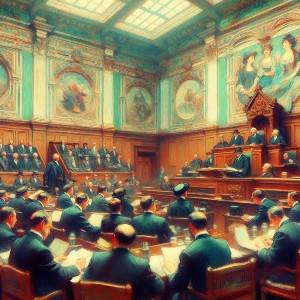Hearings are an integral part of most arbitrations. They provide each party with an opportunity to present its case directly before the arbitral tribunal and can be pivotal to the eventual outcome. However, their importance also makes them a daunting and complex procedure. This note examines some of the most important elements to expect from […]
Arbitration Procedure
Admissibility of Illegally Obtained Evidence in International Arbitration
Factual evidence plays the key role in international arbitration, as in all dispute resolution. It is generally accepted that a claim or defence of a party needs to be supported by evidence. However, a question arises about the admissibility of illegally obtained evidence in international arbitration. How do arbitral tribunals approach this issue? Evidence in […]
Use of Demonstrative Exhibits in International Arbitration
Having their origins in US litigation,[1] demonstrative exhibits have found their place in international arbitration, namely in fact-intensive arbitrations, such as construction arbitrations. Black’s Law Dictionary defines the term “demonstrative evidence” as “[p]hysical evidence that one can see and inspect (such as a model or photograph) and that, while of probative value and usually offered […]
Summary Procedures in International Arbitration
Summary procedures in international arbitration mean procedures by which the arbitral tribunal determines certain points of fact or law at an early stage of the proceedings, potentially dispensing with the need for further arbitration proceedings. Summary proceedings can be a blessing to a respondent facing frivolous claims that obviously lack merit, as a successful dismissal […]
The Case Against the Bifurcation of Arbitration Proceedings
Despite the common use of bifurcation in arbitration proceedings, there are many arguments against the bifurcation of most arbitral proceedings. Bifurcation refers to the separation of issues, typically dividing the proceedings into jurisdictional or procedural phases and the merits phase, or merits and quantum phases, allowing the arbitral tribunal to address and decide on specific […]





